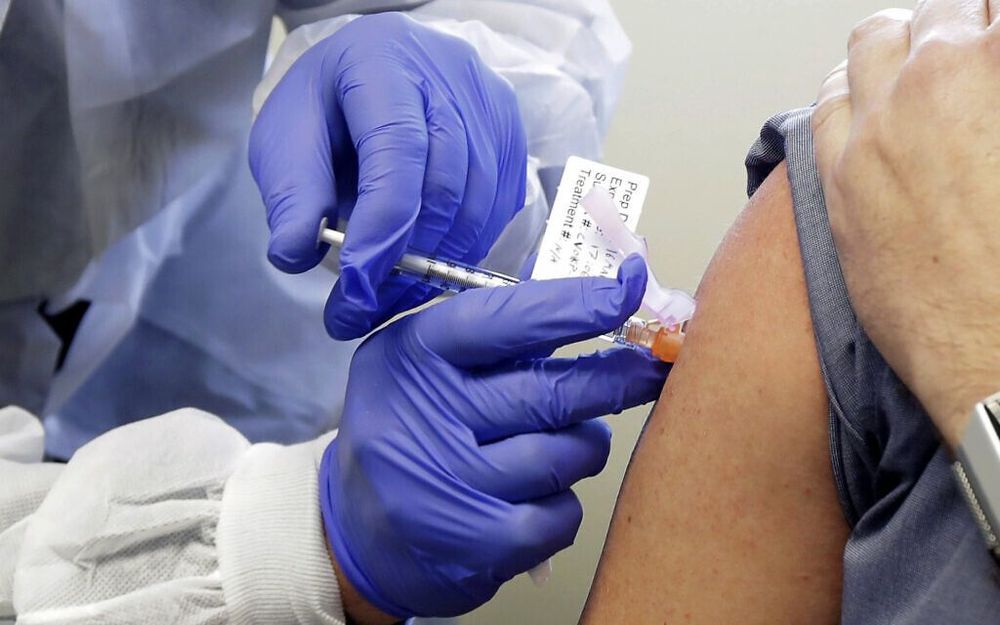Patrick Maletinsky is recognized worldwide as an expert in the field of quantum sensors. He explains why he sees significant economic and scientific potential in quantum sensing already in the near-term.


[en] In order to continue cold nuclear fusion reaction reliably and easily, gases of deuterium or deuterium compounds are introduced to a plasma reaction vessel and electric energy is applied to convert the gases into plasmas. Further, deuterium ions are attracted to the surface of materials which cause nuclear fusion by an electric field which is negatively self-biased or externally biased. Atomic deuterium collides against the surface of a cathode on the side of palladium to cause nuclear fusion reaction at the surface or the vicinity of the inside of the cathode. Since a metal absorbing a great amount of deuterium is used as the material for the cathode in order to improve the efficiency and the absorption is increased at a low temperature, the cathode is cooled by liquid hydrogen. Further, the deuterium is introduced in the form of blowing so as to increase the absorption of the deuterium. When the scale is increased by 10 to 1000 times, practical fusion reaction can be caused to utilize as a controllable energy source which can provide a remarkable industrial effect. (N.H.)
Primary Subject


Andrew Sinclair does not have anything to lose. He takes a number of drugs including the anti-diabetic medication metformin, given to him by his son David, the renowned Australian biologist and professor of genetics at Harvard Medical School, to combat the ill-effects of ageing.
David Sinclair says his father remains in good health, travelling, socialising and exercising with the energy of a man far younger than his 80 years.
David Sinclair will discuss why ageing should be classified as a disease at the Festival of Dangerous Ideas.
Renowned Australian scientist David Sinclair says we have all the information to be young again, “if we can just flip the switch”.

:oooooooo.
Recent findings of new Higgs modes in unconventional superconductors require a classification and characterization of the modes allowed by nontrivial gap symmetry. Here we develop a theory for a tailored nonequilibrium quantum quench to excite all possible oscillation symmetries of a superconducting condensate. We show that both a finite momentum transfer and quench symmetry allow for an identification of the resulting Higgs oscillations. These serve as a fingerprint for the ground state gap symmetry. We provide a classification scheme of these oscillations and the quench symmetry based on group theory for the underlying lattice point group. For characterization, analytic calculations as well as full scale numeric simulations of the transient optical response resulting from an excitation by a realistic laser pulse are performed. Our classification of Higgs oscillations allows us to distinguish between different symmetries of the superconducting condensate.


Dinorah Delfin has unleashed another exceptional edition of Immortalist Magazine. One of the best aspects is the dueling articles on the future states of Artificial General Intelligence (AGI).
Daniel Faggella constructs another dismal, dreary, depressing, destruction of hope for a benevolent artificial general intelligence. Emphasis on depressing. He has a wonderful way of creating a series of logical roadblocks to any optimism that there is a future with a compassionate artificial general intelligence. But he seems to be arguing against a contention that probably nobody believes in. He is arguing that there is no certainty that an artificial general intelligence will be benevolent. Most thinking humanoids are going to agree with that perspective. As he points out forcefully in his concluding and strongest rebuttal: no one knows what the future holds.
But no one is looking for absolute certainty in the far future. Transhumanists in general are looking for a path forward to an existence full of superhappiness, superintelligence and superlongevity.
How did Viruses evolve?
The evolutionary history of viruses remains unclear. Some researchers hypothesize that viruses evolved from mobile genetic elements that gained the ability to move between cells. Other researchers postulate that viruses evolved from more complex organisms that lost the ability to replicate independently. Still others hypothesize that DNA viruses gave rise to the eukaryotic nucleus or that viruses predate all cellular life-forms. Reasonable arguments can be made for all of these hypotheses. It may be that viruses arose multiple times, via each of these mechanisms. It may be that viruses arose from a mechanism yet to be described. Continuing studies of viruses and their hosts may provide us with clearer answers.

You can access information for this clinical trial in the links pdf.
Percentage of patients with PCR-positive nasopharyngeal samples from inclusion to day6 post-inclusion in COVID-19 patients treated with hydroxychloroquine only, in COVID-19 patients treated with hydroxychloroquine and azithomycin combination, and in COVID-19 control patients.

Possible treatments for coronavirus:
Remdesivir by the firm Gilead was developed to fight other viruses including Ebola (where it was shown to be ineffective) and it hasn’t yet been approved for treating anything. Still, it has shown early promise in treating some coronavirus patients in China, according to doctors, and manufacturer Gilead is moving ahead with final stage clinical trials in Asia. It has also been used to treat at least one US patient so far.
NIH’s Anthony Fauci, one of the top government scientists overseeing the coronavirus response, has said it could be available in the next “several months.”
WHO officials says progress being made, but any immunizing solution will take time: ‘There is only one thing more dangerous than a bad virus, and that’s a bad vaccine’